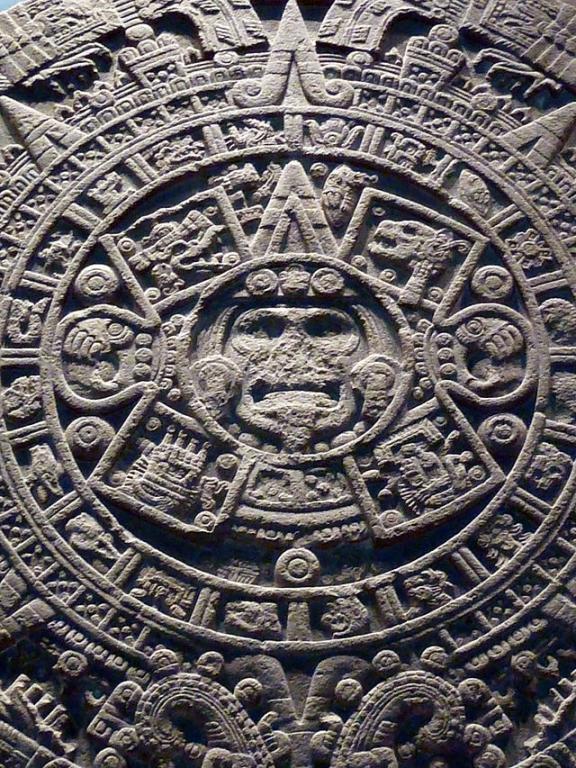
(photo Rob Young)
I notice for those who continue to follow the Julian calendar the now conventional Gregorian calendar’s January 14th is going to be their New Year. This marking has come to be called Orthodox New Year because the majority of people marking time this way are either Eastern or Oriental Orthodox. Not the only ones, but the majority.
Among the consequences is that if for some reason or another you missed New Year’s Eve, you have this one! But you do have to get busy. And this set me to thinking. I looked at my history of blogging, and I see it’s a recurring interest of mine. Starting with why January 1st, Gregorian or Julian? But the whole idea of calendars, as well.
A bit of digging around the web reveals the earliest recorded celebration of a “new year” we can attest, took place in Mesopotamia somewhere in the neighborhood of two millennia before that common era. I understand most inhabitants of the ancient Near East, foremost among the the Egyptians started their new years on the autumnal equinox. While the Greeks liked the winter solstice.
One might think the new year should be marked by a solstice or an equinox. While it is true this season roughly is when the Earth is closest to the sun, it doesn’t appear the ancients particularly cared about that astronomical fact. At least for determining when to pin a start to the year. Instead there’s some speculation that this date follows a tradition that dates to 153 before the common era when the Romans started dating years from the inauguration of the term of the two consuls who ruled for a year.
That beginning was the festival of Janus, the two-faced god of doors and beginnings. I milked that for a few sermons over the years. It was enshrined in Julius Caesar’s reformed calendar, what we call the Julian, which would eventually become normative throughout the empire. And therefore much of Europe and the Near East.
Although the beginning of March which is somewhere in the neighborhood of the equinox gave 1 January a bit of a run for its money for quite a while. But January 1st was finally established for Europe and anywhere Europe exercised its muscle with the Gregorian reform of the Julian calendar.
The Chinese new year follows a lunar calendar with solar corrections on a regular basis, and falls somewhere been January 21st and February 20th. Wikipedia tells me that while we do a traditional numbering from the reign of the Yellow Emperor three thousand years before the common era, this seems more an adaptation of overseas Chinese than something observed in China itself, and for those who use this date, there are three different days to choose between.
India, on the other hand, never seems to have established a common counter for the sub continent. Although dates associated with the spring seem most popular. Africa has a similar lack of a continent wide date, although in North America and elsewhere within the African diaspora the Yorba Odunde festival, which takes on the 2nd of June is increasingly popular. Similarly, the indigenous peoples of the Americas have no commonly accepted date, although spring remains popular. One exception to that general rule is the Pueblo peoples, who mark the 22nd of December, which is a bit closer to the seasonal markers than the 1st of January.
It appears for a number of reasons, not least the near world dominance of European colonialism up until relatively recently has made the Gregorian calendar the calendar. With the notable tweak of dropping the term AD, Anon Domino, in the “Year of our Lord,” and with it BC meaning Before Christ in favor of the more neutral “Before the Common Era,” and “After the Common Era.” This has been helped along by the fact the dating going back to Jesus’ birth is generally considered to be off by somewhere between four and six years, and had nothing to do with the first of January. Still, for some the dating is a bitter pill. Again, thanks to Wikipedia, I see that the religious studies scholar Raimon Panikkar spoke for many when he contends that using the designation BCE/CE is a “return… to the most bigoted Christian colonialism” towards non-Christians, who do not necessarily consider the time period following the beginning of the calendar to be a “common era.”
It is hard to miss the colonialist implications of continuing the Gregorian calendar. On the other hand former United Nations Secretary-General Kofi Annan argues, “[T]he Christian calendar no longer belongs exclusively to Christians. People of all faiths have taken to using it simply as a matter of convenience. There is so much interaction between people of different faiths and cultures – different civilizations, if you like – that some shared way of reckoning time is a necessity. And so the Christian Era has become the Common Era.”
Many do not buy that, of course. Nor should they. But, nothing on offer so far has made any real headway. And, I suspect for the time being, despite all the problems with the Gregorian calendar, it’s going to be around for a while yet. Certainly, there appears to be no popular move to shift to a new calendar, and if there were, there appears to be be no successor sitting around waiting for the job. The Secretary-General is right, as a practical matter the world has a calendar. And it is the Gregorian.
With the possible exception, I might speculate, of one of the versions of the Chinese calendar might eventually supplant the Gregorian. However, the Chinese seem to be in no rush to flex their growing muscle in this way. In fact the always practical Chinese have incorporated the Gregorian style into their governmental and business usage, reserving the traditional calendar for calculating holidays. And that might in fact be a pointer to our future as a global people, some over arching lingua franca in various areas, for example here with the continuing of a slightly tweaked Gregorian calendar, but with lots and lots of local enrichment…
Could work.
And, me, I like cultural mashups.
So, for me, this little meditation becomes a looking two ways, like for Janus, to a past cleaned up a bit in our imagination, extending back, back to the dream world itself, and forward to a future enriched and messy…
Not the worst thing.
And, with that, for all who observe the Old New Year! Wishing you the felicities of the season!













